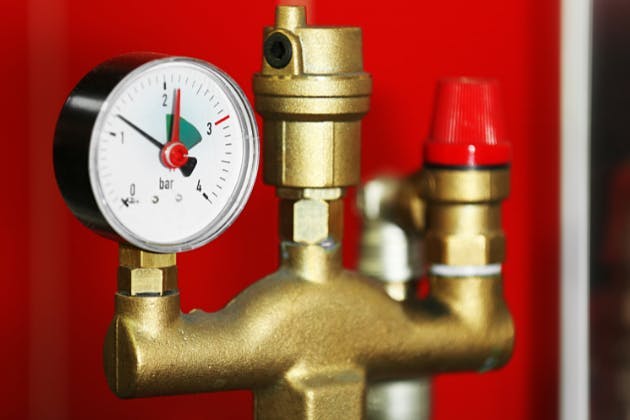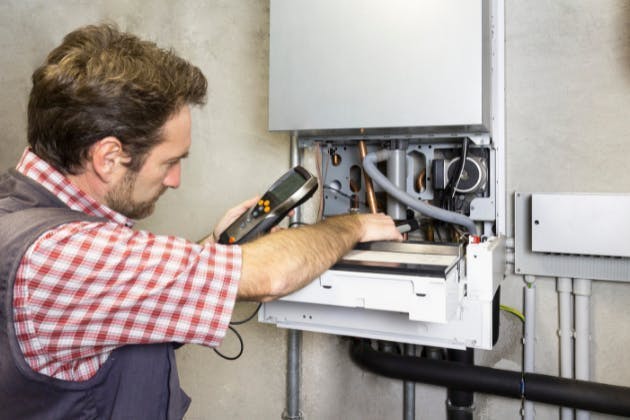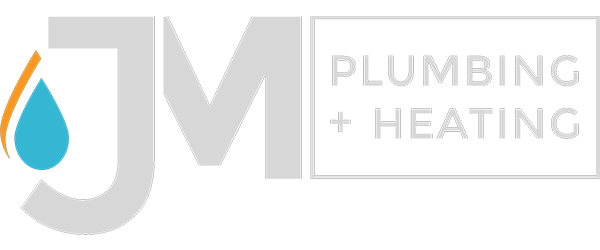If you're experiencing issues with your boiler, such as experiencing no hot water, it's possible that this is due to your boiler experiencing low pressure. The excellent thing is that low boiler pressure is generally simple to detect, here's our helpful guide to help you understand the common causes of low pressure.

What is boiler pressure?
The balance of water and air inside your boiler's system is known as boiler pressure. Your boiler requires a certain balance of water and air to work properly, ensuring that the system pressure is appropriate for when water is requested from the boiler, this is basically when you turn your heating and hot water on.
When your system experiences an inadequate flow of water to heat your home, it will result in low boiler pressure.
How to check for low boiler pressure
To find out whether your boiler is experiencing low pressure, make sure to check the pressure gauge. This will tell you whether the pressure is too high or too low.
Many newer boilers now have a screen which often shows a fault code which can help pinpoint the source of the issue. Your boilers handbook will have a list of fault codes and what they could mean. If you are unsure what a fault code means, simply get expert advice from a qualified heating engineer.
In order for boilers to perform effectively and safely, boilers must run within a specified range, which commonly falls between 0.7 and 2.5 bar. If the pressure falls below the permitted range on a regular basis, you will need to consult with a heating engineer.

Reasons for a low boiler pressure
Leaks in the system
A leak in your heating system might be difficult to detect. The leaking pipe may occur anywhere within a wall or under a floorboard. Sometimes it may be a tiny leak that goes undetected for a long period of time which can cause a drop in pressure.
Here at J M Plumbing & Heating, we recommend checking for wet spots around pipes, radiators, and the boiler. Make sure to never open your boiler to check for leaks, it is very important to hire a Gas Safe registered engineer to take a look into this for you.
Faulty parts
When you have had the same boiler for many years, there are chances that certain parts within your boiler might fail, resulting in issues. A broken pump, for example, is less effective and may have trouble sustaining pressure. Do not attempt to find the faulty boiler component on your own, as previously stated, make sure to consult a Gas Safe engineer, who will find the faulty part and get it repaired or replaced.
Too much pressure in your system
Low pressure can, strangely, be caused by high pressure. To make your heating system safe, it should include a pressure release valve. Turning on the heating system when it is cold and the pressure is high, will cause the pressure to raise even more and when it cools down, you may see that the pressure has decreased significantly.
Damaged pressure relieve valve
This is normally found behind the boiler, on the exterior of the house. It is similar to a tap that turns on when the boiler pressure increases significantly and can wear out and leak over time. The pressure will decrease as it would with any other leak if this occurs. Check the valve for water drops, since it rarely is wet when running usually.
Here at J M Plumbing & Heating, we are Gas Safe registered, simply call us on 07817 927067 and we will be happy to help repair any issues you may be experiencing with your boiler.

